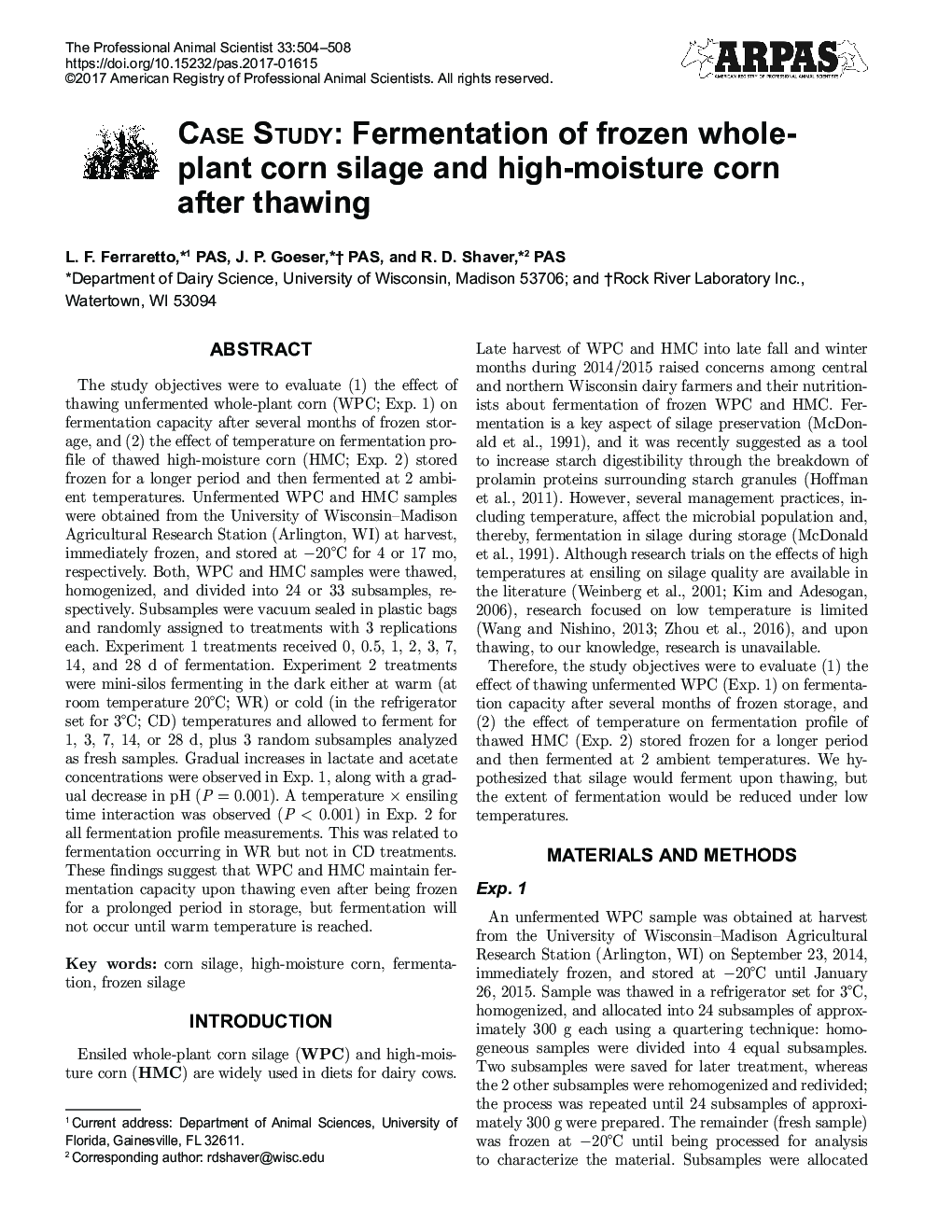| Article ID | Journal | Published Year | Pages | File Type |
|---|---|---|---|---|
| 8503747 | The Professional Animal Scientist | 2017 | 5 Pages |
Abstract
The study objectives were to evaluate (1) the effect of thawing unfermented whole-plant corn (WPC; Exp. 1) on fermentation capacity after several months of frozen storage, and (2) the effect of temperature on fermentation profile of thawed high-moisture corn (HMC; Exp. 2) stored frozen for a longer period and then fermented at 2 ambient temperatures. Unfermented WPC and HMC samples were obtained from the University of Wisconsin-Madison Agricultural Research Station (Arlington, WI) at harvest, immediately frozen, and stored at â20°C for 4 or 17 mo, respectively. Both, WPC and HMC samples were thawed, homogenized, and divided into 24 or 33 subsamples, respectively. Subsamples were vacuum sealed in plastic bags and randomly assigned to treatments with 3 replications each. Experiment 1 treatments received 0, 0.5, 1, 2, 3, 7, 14, and 28 d of fermentation. Experiment 2 treatments were mini-silos fermenting in the dark either at warm (at room temperature 20°C; WR) or cold (in the refrigerator set for 3°C; CD) temperatures and allowed to ferment for 1, 3, 7, 14, or 28 d, plus 3 random subsamples analyzed as fresh samples. Gradual increases in lactate and acetate concentrations were observed in Exp. 1, along with a gradual decrease in pH (P = 0.001). A temperature à ensiling time interaction was observed (P < 0.001) in Exp. 2 for all fermentation profile measurements. This was related to fermentation occurring in WR but not in CD treatments. These findings suggest that WPC and HMC maintain fermentation capacity upon thawing even after being frozen for a prolonged period in storage, but fermentation will not occur until warm temperature is reached.
Related Topics
Life Sciences
Agricultural and Biological Sciences
Animal Science and Zoology
Authors
L.F. PAS, J.P. PAS, R.D. PAS,
